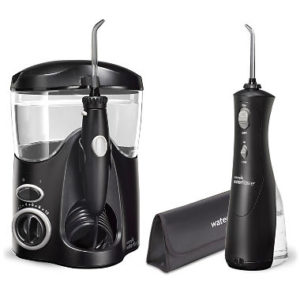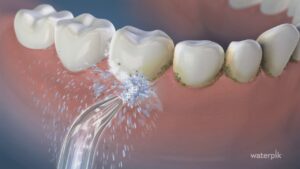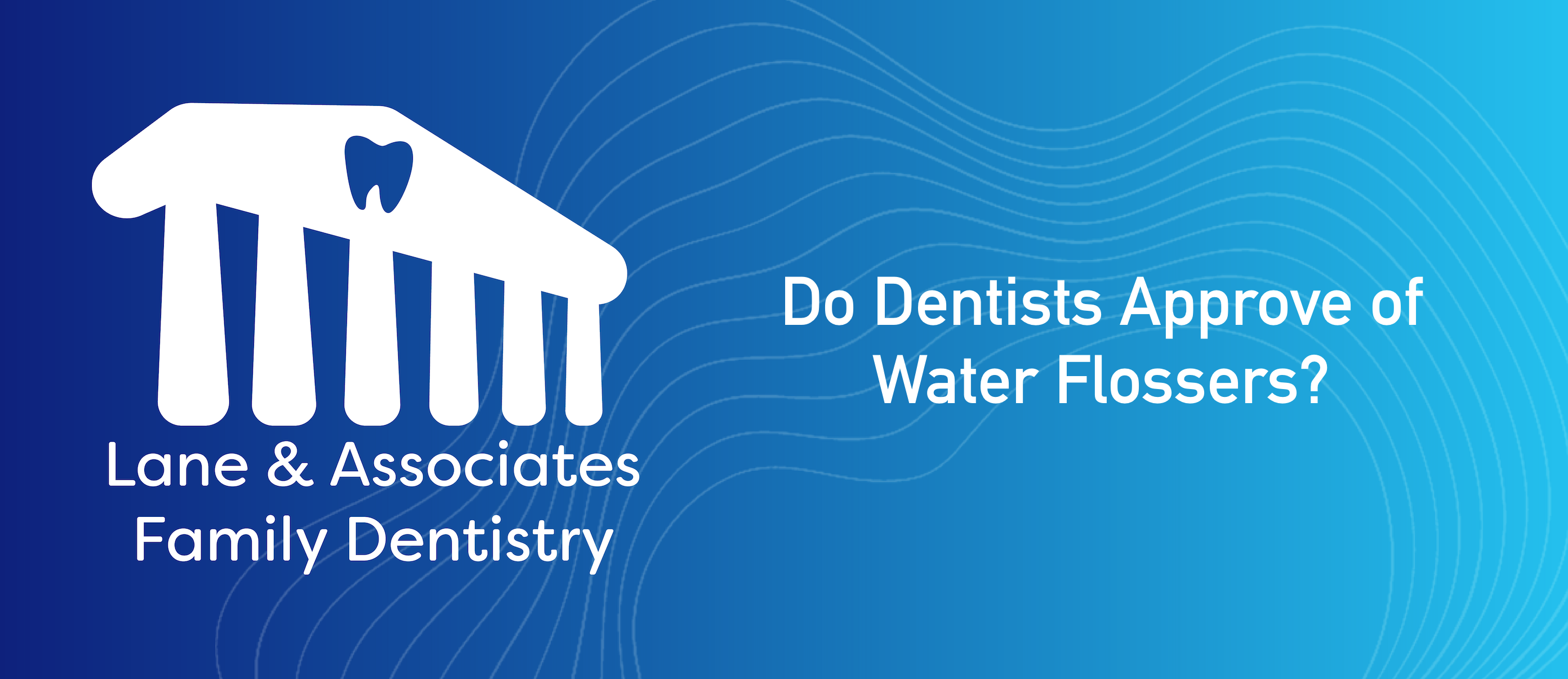When looking at the ever evolving world of flossing an up and coming poplar tool is the water flosser. These handy tools are becoming a big hit in keeping our teeth clean and healthy. Imagine a mini power washer for your mouth, blasting away food bits and plaque in those hard-to-reach spots between your teeth and gums. Dentists are giving them the thumbs up, especially for people who find regular flossing tricky or a bit of a pain.
In this blog, we’re diving into why dentists like water flossers, what the ADA has to say about them, and how they stack up against traditional flossing. Plus, we’ll explore the best times to use them and answer some burning questions you might have.

In the realm of dental hygiene, water flossers have emerged as a popular tool, sparking discussions among both consumers and dental professionals. Dentists generally approve of water flossers, especially for individuals who find traditional flossing difficult or unpleasant. Water flossers use a high-pressure stream of water to remove food particles and plaque between teeth and below the gum line. This method of cleaning can be particularly beneficial for those with braces, dental implants, or other types of dental work that make traditional flossing challenging.
What does the ADA say about water flossers?
The American Dental Association (ADA) plays a crucial role in validating the effectiveness of dental products. When it comes to water flossers, the ADA has granted its Seal of Acceptance to certain models, indicating that they are effective at removing plaque and reducing gingivitis. This seal is not given lightly; it requires scientific evidence demonstrating that the product meets stringent criteria for safety and efficacy. The endorsement by the ADA suggests that approved water flossers can be a valuable part of an individual’s dental care routine. For individuals looking for reliable dental advice and services, resources like Family Tree Dental can provide guidance and professional care.
Clinical studies have shown that water flossers can significantly reduce bleeding and gingivitis compared to string floss. However, it’s important to note that while water flossers are an effective tool for maintaining oral hygiene, they may not completely replace traditional flossing for everyone. Dentists often recommend using them in conjunction with string flossing, particularly for cleaning tight spaces between teeth.
What are the advantages of water flossing?
Water flossing offers several advantages that contribute to its growing popularity. One of the primary benefits is its ability to effectively remove plaque from between teeth and below the gumline, areas that are often difficult to reach with traditional floss. This is especially beneficial for individuals with braces, dental implants, or other dental appliances, as water flossers can navigate around these structures easily. Moreover, water flossing is often considered more gentle on the gums, reducing the risk of bleeding and irritation that can sometimes result from the use of string floss. This gentleness makes it an excellent option for those with sensitive gums or those who are prone to gum inflammation. Additionally, the ease of use and the quickness of the process make water flossing a convenient option for many people, encouraging regular use and thus promoting better oral hygiene.
Can water flossing replace regular flossing?
The debate over whether water flossing can replace traditional flossing centers on the differences in how each method cleans the spaces between teeth and along the gum line. While water flossing is highly effective at removing loose particles and reducing plaque, traditional string floss has the advantage of physically scraping off plaque and dislodging debris stuck between teeth. Consequently, many dental professionals view water flossing as a complement to, rather than a replacement for, traditional flossing. They recommend using both methods as part of a comprehensive oral hygiene routine to achieve the best results in maintaining dental health.

What is the difference between waterpiking and water flossing?
“Waterpiking” is often used interchangeably with water flossing, but it specifically refers to the use of Waterpik, a brand of water flossers that has become synonymous with the product category. While all water flossers serve the same basic function, Waterpik devices are known for their research-backed effectiveness and specific design features that may offer additional benefits, such as adjustable water pressure settings and various nozzle tips to cater to different needs.
Is it better to water floss in the morning or at night?
The timing of water flossing, whether in the morning or at night, depends largely on personal preference and lifestyle. Nighttime flossing is widely advocated by dental professionals due to many reasons:
- It removes the day’s accumulation of plaque and food particles, preventing them from sitting on the teeth and gums overnight.
- Helps the mouth produce less saliva during sleep, boosting the natural ability to cleanse and protect the teeth,
- Decrease the risk of tooth decay and gum disease.
Morning flossing, however, has its own advantages:
- It can remove plaque and bacteria that have built up overnight, giving a fresh start to oral hygiene for the day.
- It also plays a significant role in combating bad breath, often caused by the overnight bacterial activity
Conclusion
Water flossers have garnered significant attention and approval within the dental community, including a nod from the American Dental Association (ADA) for certain models. These devices have proven to be a formidable ally in the battle against plaque and gingivitis, offering a convenient, effective, and gentle alternative to traditional string flossing. Particularly beneficial for individuals with braces, implants, or sensitive gums, water flossers facilitate a deeper clean in hard-to-reach areas of the mouth, enhancing overall oral health.
As dental technology continues to evolve, it is important for individuals to consult with dental professionals to tailor their oral hygiene practices to their specific needs. By staying informed and proactive in dental care, one can ensure the longevity and health of their smile, reinforcing the invaluable role of tools like water flossers in achieving optimal oral hygiene.


